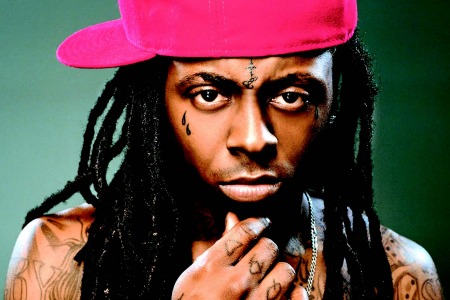
Gangsta rap has been defined as “a subgenre of hip-hop music that evolved from hardcore hip-hop and purports to reflect urban crime and the violent lifestyles of inner city youths.”
The negativity inherent in that definition could not be any more clear, and the fact that the music has been embraced by so many young African-Americans, especially males, speaks volumes about their misguided mindsets, their (usually) undesirable backgrounds, their bleak futures, and the problems they create in the Black community.
The genre emerged in the mid-1980s, popularized by acts such as N.W.A. (an acronym for “Niggaz Wit Attitudes”), Ice-T and Schoolly D, and quickly found acceptance among a certain segment although, due to the language and subject matter, had limited exposure on the radio. That, however, did little, if anything, to deter sales.
One of the saddest and most discouraging aspects of gangsta rap is that it — there is no other way to put it — glamorizes hoodlumism. In times past, behavior and attitudes that are now accepted, and all too often emulated, would be deplored.
THIS IS not to suggest that gangsta rap is the cause of rampant crime in the African-American community committed mainly by young Black males, but it is surely a factor. That includes the recordings, the videos, the live shows, what’s on the Internet, etc.
Having served time seems to enhance the popularity of gangsta rappers. If it doesn’t do that, it certainly doesn’t hurt. There are times when one might think of going to jail as a rite of passage. Some even say it gives “street cred.”
Consider the number of gangsta/hardcore rappers who have (or had) been behind bars, for committing a wide array of criminal acts. Just to name a few: DMX, Ja Rule, Shyne, Tupac Shakur, 50 Cent, Foxy Brown, Ol’ Dirty Bastard (now there’s a name for you!), Mystikal, Lil Wayne, Slick Rick, Da Brat and T.I.
50 Cent (Curtis Jackson), for example, was found guilty of selling cocaine, domestic violence, heroin possession and driving without a license.
But he’s got nothing on DMX (Earl Simmons). His transgressions include possession of crack cocaine, driving without a license, criminal possession of a weapon, reckless driving and parole violation.
With “heroes” like these, the chances for a successful life are that much more limited for their fans.
Other popular gangsta rappers, past and present, include Scarface, Bone Thugs-N-Harmony, Snoop Dogg (now Snoop Lion), C-Murder, Lil’ Kim, Nas and Easy-E.
ANOTHER cause for great disappointment in the gangsta rap realm — and well beyond — is the flagrant and consistant use of the word “nigga.” Some proponents say that a White person saying “nigger” is one thing and a Black person referring to another African-American as “nigga” are completely different.
Granted, they are not the same, but the latter is hardly a “term of endearment.”
Using the word shows a lack of self-respect and respect for one’s race. Embracing racial slurs — most of which were created by Caucasians — makes no sense.
Chinese people never refer to themselves as “chinks.” No Italian would use the term “dago.” Jewish people wouldn’t think of embracing the words “heeb,” “hymie” or “kike.” When was the last time you heard a White person say “honky” in self-reference? Native Americans do not accept “redskin.” People of Hispanic descent recognize “spic” for the insulting term it is. And “polack” is also a derogatory term, distained by Polish people.
But many Black people think it’s okay to make full use of “nigga.”
Remember in 2007 when the NAACP “symbolically buried the ‘N’ word”? For all the good that did.
CERTAINLY gangsta rappers are not solely responsible for “nigga” usage, but they do more than their share to propagate it.
Then, of course, there are the words “bitch” and “ho” which are about as strong a denigration of women as imaginable.
They have long been popular in gangsta rap, and why more women and girls have not complained remains a mystery. Indeed, at one point there was a female rap group called “Hoes With Attitudes” and another who called themselves “Bitches With Problems.”
Fortunately, following the birth of his daughter, superstar rapper Jay-Z publicly declared that he would no longer describe women as “bitches.”
Gangsta rap has been widely criticized for an array of societal ills, including promoting crime (including murder), homophobia, rape, drug dealing, street gangs, sexism and much more.
The genre has also been embraced by a substantial number of young White males. The difference is that many of them view it is something “dangerous,” exciting and a form of rebellion, but usually know how to separate their real lives from it.
NOT SO with so many young Black gangsta rap fans who make the decision, consciously or not, to “live the life.” They don’t realize they are setting themselves up to go nowhere in life, including the likelihood of landing in jail or dying early. And if their lifestyle involves terrorizing their communities, then so be it.
They take great pride in being identified and identifying themselves as “thugs.”
This commentary is not meant to be an indictment of hip-hop in general. It is a strong force that has had and continues to have a huge influence in music, fashion, language and more. There are many very talented hip-hop artists who deserve their success.
But the gangsta/hardcore element has been the scourge of the genre, and has certainly done damage to the African-American community that has been through so much and yet emerged victorious on many fronts.
Gangsta rap, whether it is called that or not, is here to stay, and why that is true is something to think about and attempt to analyze.